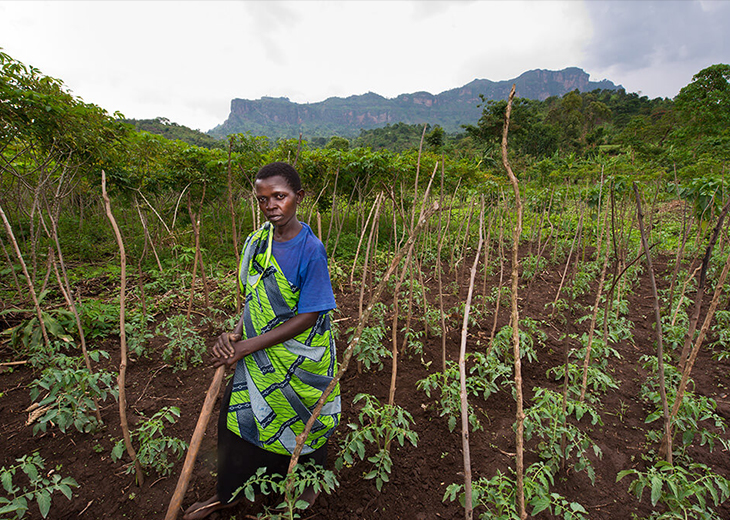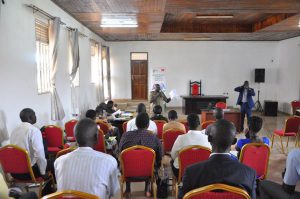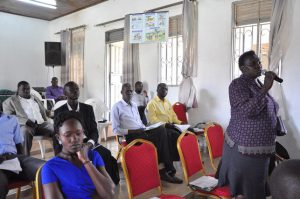By Jude Ssebuliba
Like it has been done for the last seven years, this year, on 19th October, 2018 R2F partners led by PELUM Uganda organized the 8th Annual Indigenous and traditional food fair 2018 to showcase the socio-economic and cultural value of indigenous and traditional food and seed systems as well as their potential to preserve agrobiodiversity and combat hunger. The theme for this year’s food fair was; Indigenous and traditional food and seed systems, preserving agricultural biodiversity, ending hunger. This theme is in support of the World Food Day 2018 theme, “Working for Zero Hunger” and the International Day for Biological Diversity 2018. Further, the theme is in support of Sustainable Development Goal (SDG) 2 to end hunger, achieve food security and improved nutrition, and promote sustainable agriculture.
Indigenous and traditional food and seed systems are inextricably linked to agricultural biodiversity and food security. For millennia, Indigenous and traditional food and seed systems have preserved and maintained agriculture biodiversity as they are the main source of diverse germplasm which broaden the genetic base of production with multiple crop species and varieties adapted to specific production systems and microclimates. These diverse varieties, crop species and systems underpin food security and provide insurance against future threats and ecological changes (Mulvany et al., 2002).
According to FAO (2004), agricultural biodiversity is among the earth’s most important resources. It is a broad term that includes all components of biological diversity of relevance to food and agriculture, and all components of biological diversity that constitute agricultural ecosystems: the variety and variability of animals, plants, and micro-organisms, at the genetic, species, and ecosystem levels, which are necessary to sustain key functions of the agro-ecosystem, its structure and processes. It’s the first link in the food chain, developed and safeguarded by indigenous peoples, women and men farmers, forest dwellers, livestock keepers and fisher folk throughout the world and has developed as result of the free-flow of genetic resources between food producers.
Indigenous and traditional seed systems contain immense biodiversity essential to the conservation of agriculture biodiversity and critical for the production of a diversity of foods to ensure dietary diversity in smallholder communities. Furthermore, the agricultural biodiversity within indigenous and traditional food and seed systems contributes to food and nutrition security, improved financial situations, and for combating ‘hidden hunger’ caused by micronutrient (vitamin and mineral) deficiencies.
Despite of this, Agro-biodiversity is at risk with the expansion of industrial agriculture all over the world. Locally varied food production systems are under threat, including local knowledge and the culture and skills of women and men farmers. With this decline, agrobiodiversity is disappearing; the scale of the loss is extensive. With the disappearance of harvested species, varieties and breeds, a wide range of unharvested species also disappear. According to FAO (1990), roughly 75% of plant genetic diversity has been lost worldwide since the 1990s. Farmers have left their sizable chunk local varieties and land races for genetically improved and high yielding varieties which undermines food security. Conservation of agro-biodiversity is important as it is the genetic materials for food, agriculture, source of human nutrition and climate resilient farming systems.
This event was thus organised to; showcase the innate socio-economic and ecological value of indigenous and traditional foods and seeds and highlight the significant contribution of these systems to conservation of agricultural biodiversity and attainment of food security.







